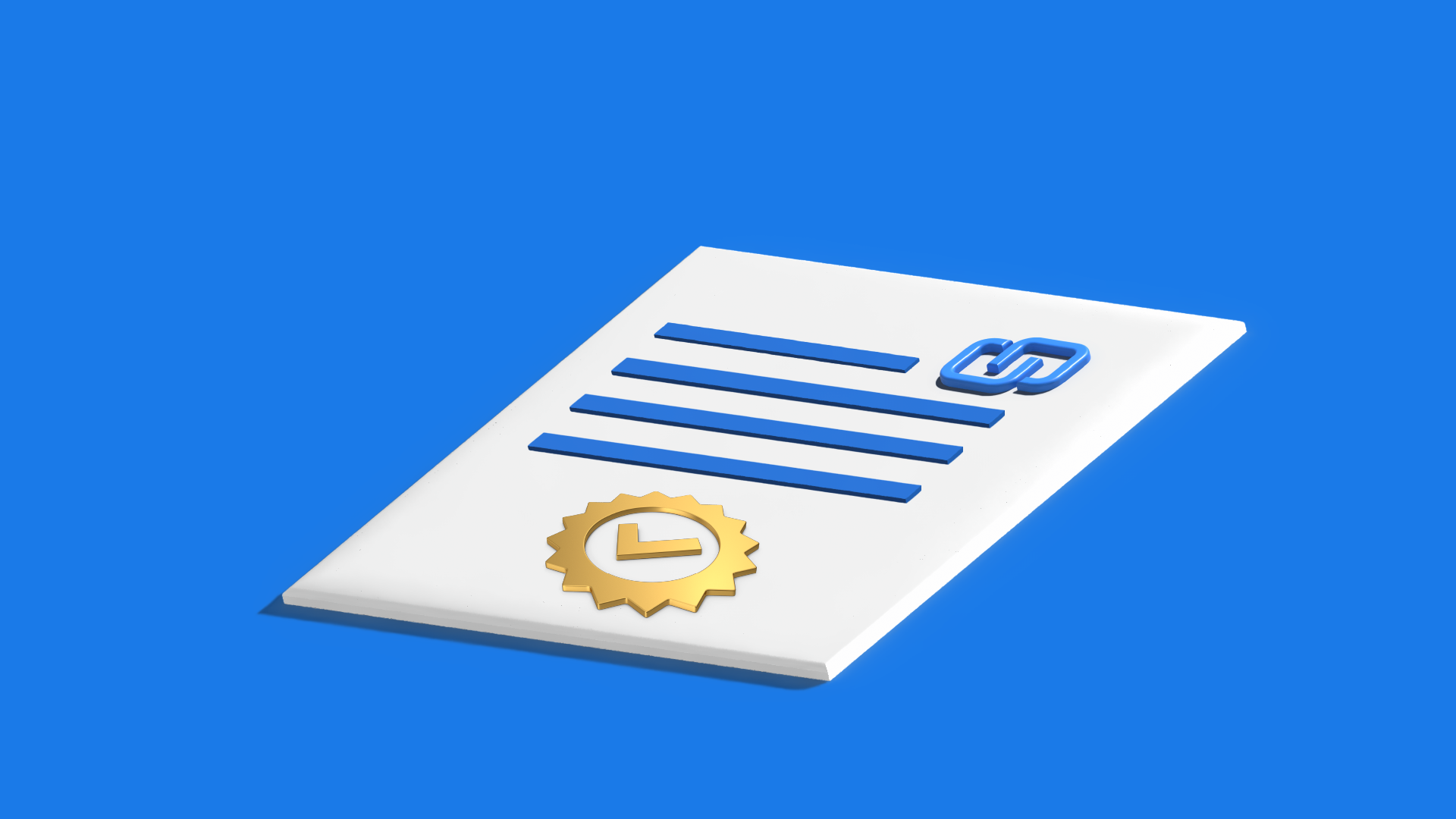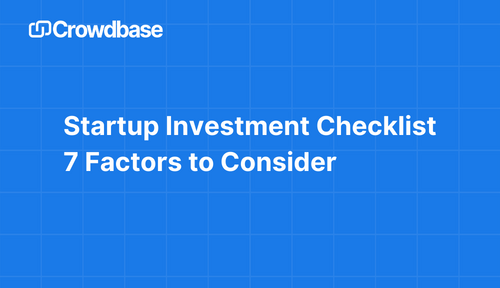What is a Convertible Loan?

Panayiotis Kakourides
COO

Introduction to Convertible Loans
Imagine you lend money to a friend to help them start a business, with an option to own a part of the business later instead of getting your money back. This is what we call a convertible loan. It's a flexible way for investors to fund startups, combining the simplicity of a loan with the opportunity to eventually become shareholders of the company. Convertible loans are especially useful when a business is in its early stages and traditional bank financing or selling shares might not be the best fit due to the high risk involved.
In a convertible loan, investors lend money to a startup under the agreement that the loan may be converted into equity under certain conditions. These conditions often include the company raising additional funds in the future or being sold. This kind of investment is great for both sides: it gives the startup the funds it needs to grow, including seed funding, while offering potential investors a chance to benefit if the company does well.
Convertible loans are increasingly popular on crowdfunding platforms, serving as a bridge between innovative startups and forward-thinking investors. This approach to funding is all about flexibility and potential. It allows startups to secure the capital they need without giving up equity upfront, while giving investors a unique opportunity: the chance to support new ideas with the added benefit of converting their loans into equity if those ideas take off. It's a win-win, fostering a space where big ideas can grow with the support they need.
Our goal with this article is to clear up any confusion about convertible loans. We’ll talk about everything from valuation caps and interest rates to what exactly a "conversion event" is. Whether you're considering investing in a crowdfunding campaign or simply seeking information, we can guide you. We'll explain how convertible loans function, why they appeal to both investors and startups, and what aspects you should consider before participating.
By the end of this article, you’ll have a clear picture of what a convertible loan is, how it operates, and its benefits and risks. So, let’s get started on exploring the potential of convertible loans in crowdfunding and startup financing.
What is Meant by Convertible Loan?
At its core, a convertible loan is a type of financing that offers the best of both worlds: the structure of a credit with the potential upside of equity investment. Essentially, it's a loan that can be converted into equity, or shares, in a company under certain conditions.
This flexibility makes it an attractive option for startups seeking funding and investors looking for opportunities in emerging companies. Understanding this type of financing is crucial for both borrowers and investors in the world of business.
Definition and Overview
A convertible loan is a sum of money provided by an investor to a startup. Unlike a traditional loan, it includes an option to convert the loan amount into equity during an upcoming financing round, sale, or another predetermined conversion event. The primary attraction of a convertible loan is its hybrid nature. Initially, it serves as debt financing, supplying startups with essential capital without immediate ownership dilution. However, it can convert into equity, giving investors such as venture capitalists, the opportunity to share in the company's future growth.
Differences from Traditional Loans and Equity Financing
Traditional Loans: Unlike traditional loans, convertible loans do not strictly require regular interest payments or principal repayment within a fixed term. Instead, the interest may accumulate and then convert into equity, aligning the investor’s potential return with the company's success.
Equity Financing: With immediate equity financing, investors exchange capital for company shares right away, locking in their ownership percentage based on the current valuation. Convertible loans offer a different approach by delaying this equity exchange. This means investors might enter the company at a later valuation, which could be higher if the company grows successfully. While this may result in investing at a higher valuation if the startup thrives, it also offers investors an opportunity to be part of a growing company and reap the benefits of its future success. This makes it a strategic decision for those who believe in the company's potential, and can be a more accessible option for early-stage companies compared to traditional equity financing.
Convertible loans are a flexible option for startups and investors, blending the features of loans and the upside of equity.
For startups, this means getting the funds they need today without giving up part of their company right away.
For investors, it’s a way to support new businesses with the added option of turning their loan into company shares in the future, depending on how well the company does. This makes convertible loans a popular choice, balancing the need for funding with the opportunity for growth and success in the startup world.
Key Parameters of Convertible Loans
| Feature | Description |
| Loan Amount | The total capital lent to a startup, influenced by the startup's needs, investor interest, funding targets, and market context. |
| Interest Rate | The percentage added to the loan, compensating investors for risk, which may convert into additional equity instead of cash payout. |
| Loan Term | The duration until the loan must be converted into equity or repaid, set based on the startup's growth projections and conversion milestones. |
| Discount Rate | Provides early investors a lower price per share at conversion, rewarding them for early support and risk. |
| Valuation Cap | Sets a maximum company valuation for loan conversion, ensuring early investors receive a fair share of equity in future financing rounds. |
| Valuation At Maturity | The agreed-upon valuation for the company's worth at the loan's end, used if the loan converts to equity without earlier triggers, ensuring fairness for investors. |
Loan Amount
The loan amount in a convertible loan campaign through crowdfunding is crucial—it's how much money investors lend to help a startup grow. This amount is influenced by a few key factors:
- Startup’s Needs: Simply put, this is how much money the startup needs to reach its next big goal, whether it’s developing a product or expanding into new markets.
- Investor Interest: The more promising the startup and the more favourable the loan terms, the more investors are likely to contribute, potentially pushing the campaign towards its maximum funding target.
- Funding Targets: Crowdfunding campaigns set a minimum amount needed to kickstart the project and a maximum that, if reached, would further accelerate growth. The final amount raised depends on the startup’s appeal and the investment conditions.
- Market Context: The overall market environment and success of similar campaigns can also influence how much is raised, with positive conditions encouraging higher investment.
Interest Rate
When we talk about the interest rate in the context of a convertible loan, we're referring to the percentage of the loan amount that the startup agrees to pay the investor on top of the original loan amount. Unlike standard loans where the interest rate primarily serves as the cost of borrowing, in convertible loans, the interest rate plays a slightly different role due to the potential for conversion into equity with a valuation discount.
- Purpose and Impact: The interest rate on a convertible loan compensates the investor for the risk they take by lending money without immediate equity. It accumulates over the term of the loan and, instead of being paid out in cash, it often converts into additional equity at the time of conversion. This means the investor could end up owning a larger portion of the company than the initial loan amount would suggest.
- Setting the Rate: The interest rate is typically negotiated between the startup and the investors at the outset of the loan. It needs to be attractive enough to compensate investors for their risk while still being manageable for the startup, considering it might not have significant revenues yet.
- Conversion Dynamics: If and when the loan converts into equity, the accumulated interest increases the total amount being converted, thereby giving the investor more shares. This mechanism effectively rewards investors for their early support and the risk they've undertaken.
- Key Considerations: For startups, offering a reasonable interest rate is crucial for attracting investment without overcommitting future equity. For investors, understanding how the interest rate affects their potential equity stake is key to evaluating the investment's attractiveness.
Loan Term
The loan term in a convertible loan outlines how long the loan lasts before it needs to be converted into equity or repaid. It’s a critical part of the loan agreement, directly affecting both the startup and the investors.
- Essentials: Typically set during the initial agreement, the loan term is chosen based on the startup’s growth projections and how soon it expects to meet certain milestones that could trigger conversion. This period can vary, but it is crucial for planning both the startup’s use of the funds and the investor’s expectations for conversion or repayment.
- Implications: The end of the loan term acts as a checkpoint. If the startup has hit specific targets, such as securing additional funding or reaching a certain valuation, the loan may convert into equity. If not, the parties might look into repayment options or possibly extend the term.
- Strategic Balance: For startups, the term provides a timeline to utilise the investment for growth. For investors, it marks the time until potential conversion into equity, aligning investment returns with the company’s success.
Discount Rate
The discount rate in a convertible loan is a critical feature designed to reward early investors during the conversion of their loan into equity. It essentially provides investors with a discount on the price per share compared to what later investors pay during a future financing round (conversion event).
- Purpose: The discount rate compensates early investors for the higher risk they take by investing earlier in the company’s lifecycle. It acknowledges their early support and trust in the startup by offering them a better price per share than those who invest at a later stage.
- How It Works: When the convertible loan converts into equity, usually during a subsequent funding round, the discount rate is applied to the prevailing valuation, allowing early investors to convert their loan into equity at a lower price. This means they receive more shares for the same amount of investment than later investors.
- Setting the Rate: The discount rate is negotiated between the startup and the investors at the beginning of the loan. It reflects the balance between attracting investors with a compelling offer and preserving equity for the founding team.
- Strategic Importance: For startups, offering an attractive discount rate can be key to securing early funding. For investors, it represents the potential for a higher return on investment, aligning their interests with the startup's success.
Valuation Cap
The valuation cap is a crucial term in convertible loans that sets an upper limit on the valuation at which the loan converts into equity. It's designed to protect investors by ensuring they receive a fair share of the company in future financing rounds, regardless of how high the company's valuation may soar.
- Purpose: A valuation cap safeguards early investors, ensuring that their investment converts into equity at a predetermined maximum company valuation. This provision rewards them for backing the startup early, by granting them a larger equity stake if the company's valuation increases significantly.
- How It Works: If a future financing round values the company above the cap, the loan converts into equity based on the valuation cap rather than the higher valuation. This results in more shares (and thus a larger percentage of ownership) for the early investors than would be the case without the cap.
- Negotiation of the Cap: Similar to the discount rate, the valuation cap is a negotiated term. It represents a balance between protecting the interests of early investors and maintaining enough equity for founders and future investors.
- Strategic Considerations: Startups need to carefully consider the valuation cap to ensure it's attractive enough to entice investors while not overly diluting founder equity in future rounds. Investors look at the cap as a critical factor in determining the potential value of their early investment relative to the startup's future success.
Valuation at Maturity
Valuation at Maturity is a key term in convertible loans, indicating the company's valuation at the loan's maturity date, should it not convert into equity beforehand. This aspect is particularly relevant when the loan term concludes without any prior conversion event.
- Purpose: This lays the groundwork for deciding the equity investors are granted if the loan converts at the end of the term. It provides a fair evaluation of the company's value at this later stage, ensuring that investors are compensated for their initial investment risk.
- Determining the Valuation: If not converted by its maturity, the loan’s valuation can be based on recent funding rounds, an independent appraisal, or pre-agreed conditions in the loan agreement. The process requires negotiation, reflecting the company's current standing and future potential.
- Strategic Importance for Startups and Investors: It’s vital for startups to comprehend the implications of a valuation at maturity for effective equity management and maintaining investor relationships. For investors, it clarifies the potential equity return, highlighting the convertible loan's role as a pathway to ownership, conditioned by the company's value at the loan's end.
Conversion Events
Conversion events in the context of convertible loans are pivotal moments that trigger the conversion of the investor's loan into equity in the startup. These events are predefined in the loan agreement and are critical for both investors and startups to understand, as they mark the transition from a debt instrument to an equity stake in the company.
Funding Rounds
The most common conversion event is a subsequent financing round where the startup raises additional capital, usually from venture capital funds. This event is crucial because it often establishes a more concrete valuation of the company, providing a clear basis for converting the debt into equity. A funding round, as outlined in the term sheet, not only secures new capital but also introduces new investors. This presents an ideal opportunity for early backers to convert their loans and possibly benefit from favourable terms negotiated initially, such as the discount rate.
Other Triggers for Conversion
Besides funding rounds, several other events can trigger the conversion of a convertible loan:
- Sale of the Company: A sale or merger can prompt the conversion of loans into equity, ensuring that early investors can participate in the exit proceeds.
- Initial Public Offering (IPO): Going public is another significant event that can lead to conversion, allowing investors to convert their loans into publicly traded shares.
- Reaching a Predefined Milestone: Some agreements include specific operational or financial milestones as triggers for conversion, such as if the startup hits €1 million in revenue within a year, the loan will convert into equity.
Lenders’ Rights in Convertible Loans
Convertible loans offer investors a set of rights and protections designed to balance the investment’s risk with potential rewards. These rights ensure lenders are positioned favourably throughout the loan’s term and upon its conversion into equity.
Interest Accumulation
One of the primary rights for lenders in a convertible loan is the accumulation of interest over the loan term. While the interest might not be paid out in cash during the loan period, it accumulates and is factored into the conversion equation, effectively increasing the amount of equity the lender receives upon conversion.
Priority in Repayment
In scenarios where the loan does not convert, and the company faces liquidation or sale, lenders often have priority over equity holders in the repayment hierarchy. This means that they are more likely to recoup their investment before equity investors see any returns, offering a layer of financial protection against the company's failure.
Information Rights
Investors often secure the right to receive regular updates on the company's financial health, performance, and strategic direction. These information rights enable lenders to monitor their investment and the company's progress closely.
Decision Participation
In some convertible loan agreements, lenders may also obtain rights to participate in significant company decisions, particularly those that could impact the company's value or the loan's terms. This can include advisory roles or even voting rights on crucial matters.
Conclusion
Convertible loans blend debt and equity, offering startups flexible funding options and providing investors with potential rewards. This article covered the basics, key terms, and frequently asked questions to clarify how these financial instruments work.
For startups, convertible loans can secure necessary growth capital without premature equity loss. Investors gain a chance to support innovation with a safety net and enjoy the benefits of early investment if the startup succeeds.
Understanding convertible loans is essential for making informed decisions, whether you're looking to invest or fund your next big idea. With clear terms and aligned expectations, these loans can be mutually beneficial, driving forward the next wave of business innovation.
Συχνές Ερωτήσεις
Περισσότερα από την Crowdbase
Ανακάλυψε περισσότερα από το blog μας, οδηγούς και άλλαΜη χάσεις την επόμενη ευκαιρία
Εγγραφείτε στο newsletter μας για να ενημερώνεστε πρώτοι για νέες καμπάνιες, ενημερώσεις και πολλά άλλα!





